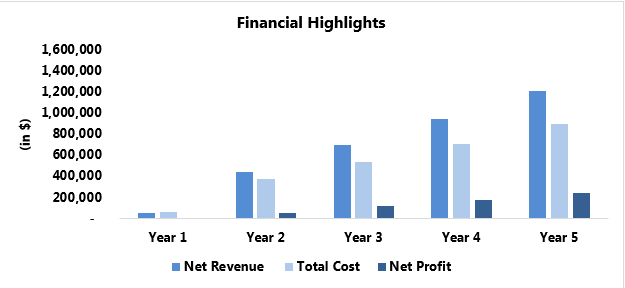I. Executive Summary
1.1 Introduction
Food security for growing populations is an increasing concern as around one-third, or 1.3 billion metric tons, of food is lost or wasted along the food value chain, which results in not only the loss of calories and nutrition available for human consumption but also valuable inputs required for its production and distribution.
Food that goes uneaten wastes money, energy, water, land, and other resources in addition to the food itself. The world can no longer afford the liability of food waste. Amid all the complexities in today’s business world, reducing food waste is low-hanging fruit in comparison with all potential responses to climate change because it doesn’t require government interventions to make a significant change. Instead, big data, machine learning, and other technologies can be used to create more efficient supply chains and marketing strategies. While people may never be able to eliminate food waste, but can play an active part in bringing about a change that significantly reduces the greenhouse gases, water wastage, and the other environmental damage it causes by using data analytics for effective food waste management.
[Company Name] will provide food waste solutions that prioritize source reduction, which will align with clients’ goals and mission. The Company’s food waste solutions will maximize DE carbonization leading to a compounding impact on businesses, people, and the environment. As food handling details are not readily available to retailers, [Company name]’s best-in-class technology platform will create new, unique data to enable clients to see what’s happening at the ground level. With [Company Name], each store will follow the same consistent process, informing decisions upstream.
The Company, located at [Location Name], will be a technology company that uses data to develop strategies to reduce food waste in the retail supply chain.
1.2 Founder Information
[Company Name] is led by [Founder’s name], who has over a decade of experience in analytics, advanced analytics, and retail analytics. He will make use of state-of-the-art technologies like analytics, IoT, neural nets, anaerobic digestion, and RFID to solve food waste reduction.
1.3 Target Customer
When it comes to food reduction, there is indeed a wide range of available clients, but the company will focus on source reduction through retail analytics. [Company Name]’s target market will be small-scale food retailers, medium-sized food retailers, and large-scale food retailers.
1.4 Why Us
Competitive Pricing – Since price is a crucial factor, the company will ensure the clients are getting the most affordable option and are clicking on the best deal available in the market.
Data-Driven –The Company will use an advanced analytics approach and specialize in the areas like analytics, advanced analytics, and retail analytics, which will help food retailers analyze future demand, which will help in source reduction.
De-carbonization Initiation – The Company will work with retailers looking to stay future-fit by offering transformative solutions with low or zero emissions.
1.5 Financial Highlights



